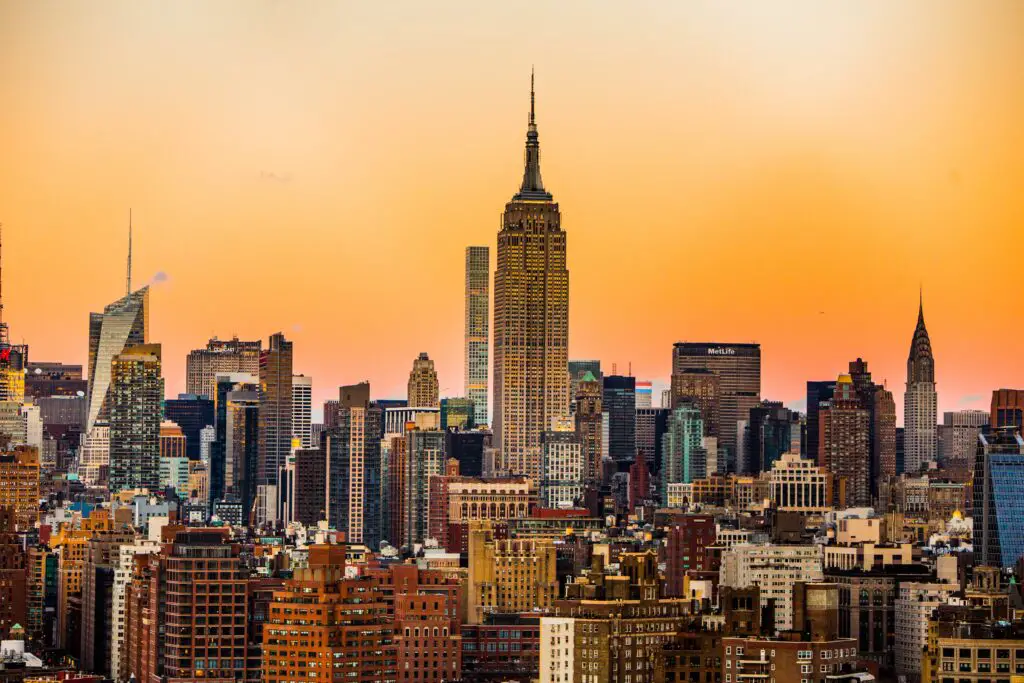The United States is home to many prestigious and well-known universities, with some cities hosting multiple institutions. These cities provide a vibrant and dynamic academic environment, attracting students from across the country and around the world. In this article, we will explore which US city has the most colleges and universities. Let us know ‘What US City Has The Most Colleges & Universities?’.

1. Boston: The hub of higher education
- Boston, Massachusetts, is commonly referred to as the “hub of higher education” due to its impressive number of colleges and universities. With over 50 colleges and universities in the city and its surrounding suburbs, Boston has the highest concentration of institutions of higher education in the United States.
- Some of the most well-known institutions in Boston include Harvard University, Massachusetts Institute of Technology (MIT), Boston College, Boston University, and Northeastern University. In addition to these renowned universities, Boston is also home to a variety of specialized schools, such as Berklee College of Music, Emerson College, and Simmons University.
- Boston’s academic community is a hub of innovation and research, with many institutions specializing in fields such as science, technology, engineering, and mathematics (STEM). The city’s colleges and universities also offer a wide range of cultural and artistic experiences, with thriving programs in theatre, music, and the arts.
2. New York City: The hub of higher education
- New York City, the largest city in the United States, is another hub of higher education. With over 110 colleges and universities, including Ivy League schools like Columbia University and Cornell University, New York City is a mecca for academic pursuits.
- In addition to these well-known institutions, New York City is home to a wide range of specialized schools and programs, such as The Juilliard School for the Performing Arts, Fashion Institute of Technology, and New York University’s Tisch School of the Arts.
- New York City’s academic community is also a leader in research and innovation, with institutions like Rockefeller University and Memorial Sloan Kettering Cancer Centre driving advances in the fields of medicine and science.
3. Los Angeles: A center for innovation and creativity
- Los Angeles, California, is known for its thriving entertainment industry, but it is also a center for innovation and creativity in higher education. The city boasts over 30 colleges and universities, including the University of California, Los Angeles (UCLA), the University of Southern California (USC), and the California Institute of Technology (Caltech).
- Los Angeles’s academic community is known for its interdisciplinary approach to learning, with institutions like the ArtCenter College of Design and the University of California, Los Angeles (UCLA) offering programs that integrate the arts and sciences.
- The city is also a leader in fields such as environmental sustainability and social justice, with institutions like Loyola Marymount University and Occidental College driving progress in these areas.
Other US Cities with Significant Numbers of Colleges and Universities
While Boston, New York City, and Los Angeles are the most well-known hubs of higher education in the United States, there are several other cities with significant numbers of colleges and universities. Some of these cities include:
- Philadelphia, Pennsylvania: Home to over 30 colleges and universities, including the University of Pennsylvania, Drexel University, and Temple University.
- Chicago, Illinois: Boasts over 25 colleges and universities, including the University of Chicago, Northwestern University, and DePaul University.
- Washington, DC: Has over 20 colleges and universities, including Georgetown University, American University, and Howard University.
In recent years, colleges and universities have increasingly been seen as agents of social change. With their significant resources and influence, academic institutions are uniquely positioned to address societal issues and drive progress in areas such as social justice, environmental sustainability, and public health.
- Many urban colleges and universities are leading the charge in this regard. For example, Northeastern University in Boston has launched several initiatives aimed at promoting diversity and inclusion, including the creation of a Centre for Advancing Teaching and Learning Through Research and the hiring of a Chief Diversity Officer.
- Similarly, Columbia University in New York City has implemented several programs focused on sustainability, including a university-wide commitment to reduce greenhouse gas emissions and a sustainability-focused curriculum.
- In Los Angeles, institutions like the University of California, Los Angeles (UCLA) and the California Institute of Technology (Caltech) are driving advances in fields such as renewable energy and climate science.
- Across the country, colleges and universities are also playing a crucial role in addressing public health issues, such as the COVID-19 pandemic. Many institutions have implemented measures such as mask mandates, testing and vaccination requirements, and virtual learning options to keep their communities safe and prevent the spread of the virus.
Conclusion
In conclusion, while Boston has the highest concentration of colleges and universities in the United States, other cities like New York City, Los Angeles, Philadelphia, Chicago, and Washington, DC also boast significant numbers of academic institutions. These urban centres serve as hubs for innovation, research, and academic excellence, driving progress in fields such as science, technology, the arts, and social justice.
Moreover, academic institutions are increasingly being recognized for their role in addressing societal issues and promoting positive change. As we move forward, these institutions will continue to be vital to the development of our communities, our society, and our world.
